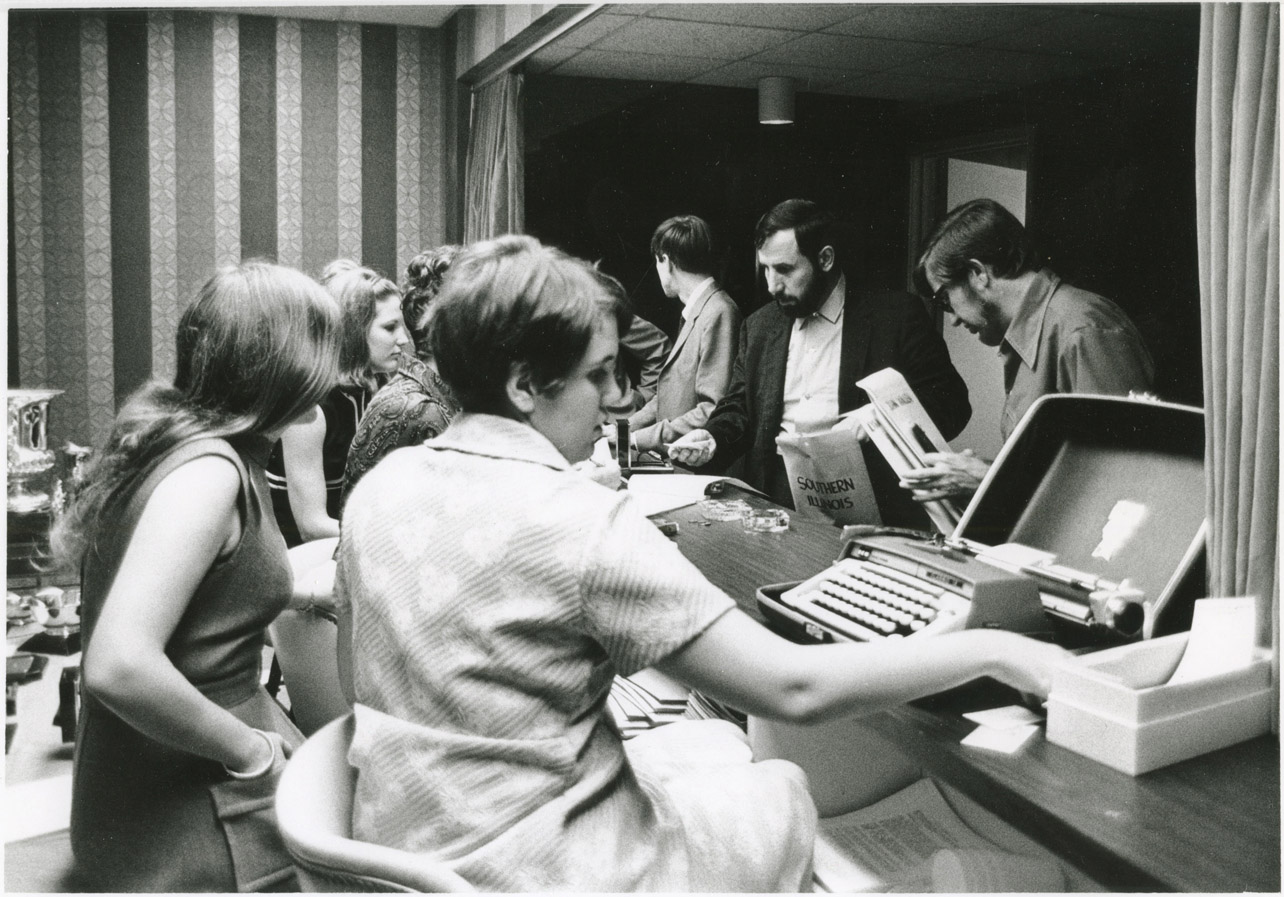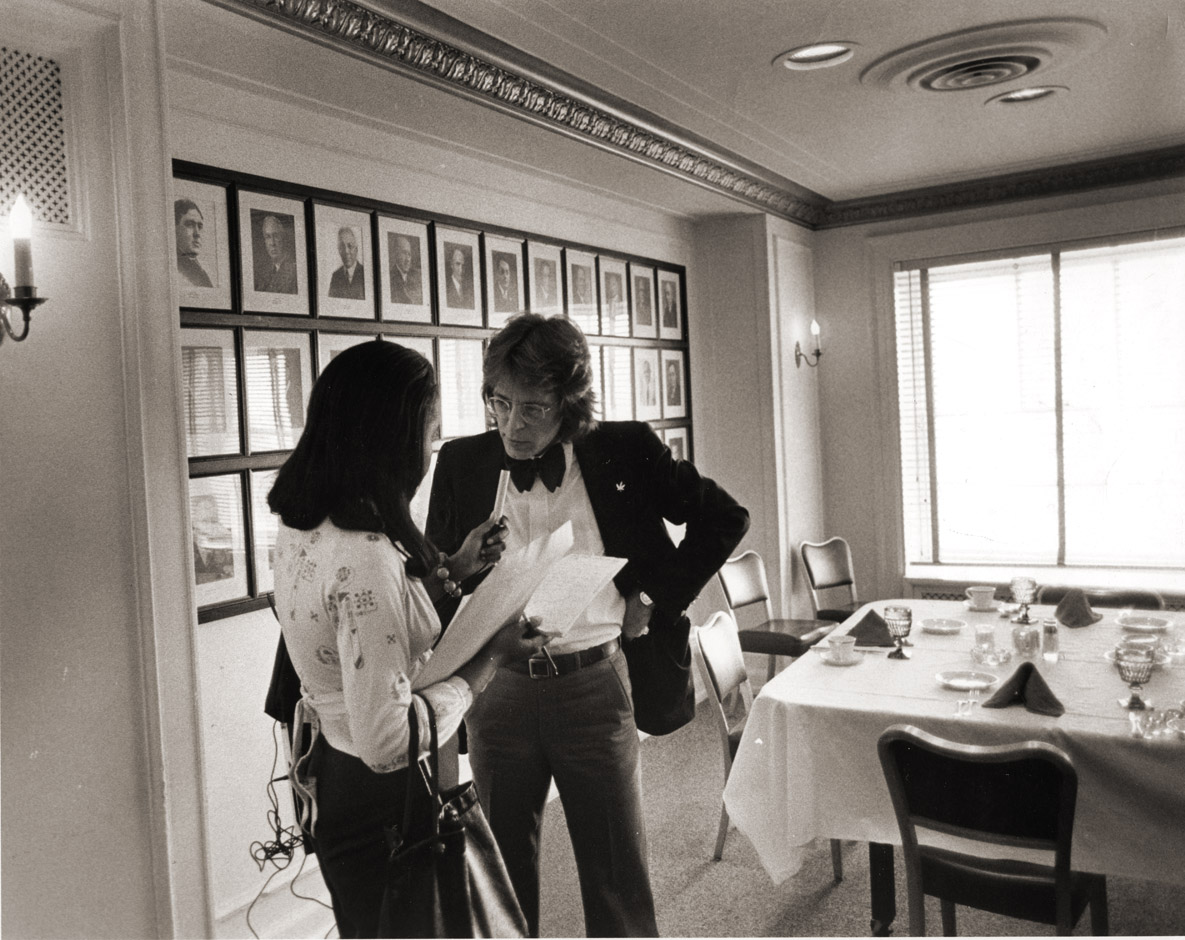Nashua (N.H.) Labor Council Collection
Established as the newspaper of organized labor in New England in 1989, the New England Labor News and Commentary was the official newspaper of the Nashua, N.H. Labor Council.
Established as the newspaper of organized labor in New England in 1989, the New England Labor News and Commentary was the official newspaper of the Nashua, N.H. Labor Council.

The National Arts Policy Archive and Library is a collaborative project initiated by SCUA, the UMass Amherst Arts Extension Service, and several partners in arts agencies intended to document the history of arts administration in America. Collecting the records of state-level and national arts agencies, NAPAAL will provide a foundation for research into the evolution of arts policy, strategies for supporting the arts, and the economic and cultural impact of the arts on our communities.
Constituent collections include:

A not for profit membership organization, the National Assembly of State Arts Agencies (NASAA) provides representation for state and jurisdictional arts agencies at the national level. Incorporated in 1974, NASAA has been an important forum for directors, chairs, and staff of its member organizations, supporting their collective efforts to advance the arts as an essential public benefit. Working with the National Endowment for the Arts and other agencies, NASAA also helps to strengthen state arts agencies by supporting excellence in and access to the arts.
The NASAA collection includes important documentation of the founding and early operations of the organization, priorities and controversies over the years in arts management, and records of its annual meetings.
The National Association for Rights Protection and Advocacy supports people with psychiatric diagnoses to exercise their legal and human rights, with the goals of abolishing forced treatment and ensuring autonomy, dignity, and choice.
The NARPA collection contains audio tapes of conferences held between 1993 and 2002.
The first New Hampshire branch of the NAACP was formed in Portsmouth in 1958, meeting initially in the home of its first president, the local businessman Thomas Cobbs. Growing steadily during the 1960s, the Portsmouth membership were engaged in addressing local concerns over discrimination in housing and employment and were stalwart supporters of the national civil rights struggle.
This small collection of records from a local New England branch of the NAACP consists of minutes of meetings between 1963 and 1966 and a relatively miscellaneous assortment of fliers and other materials from the national organization. Although the collection is slight, it includes records NAACP actions in Portsmouth and, notably, the minutes were kept by Betty Hill and her husband Barney, who became well known for their claim to having an encounter with a UFO.

The National Debate Tournament is one of the national championships for collegiate debating in the United States, seeking to exemplify excellence in scholarship, research, and argument. Originating at West Point in 1947 with twenty-nine teams, the Tournament now includes over eighty teams, with the site of the finals rotating annually among member schools.
The collections consists mostly of tournament booklets, ballots, correspondence, committee minutes, and tapes of the debates with accompanying transcripts.

Established by Congress in 1965 as an independent agency of the federal government, the National Endowment for the Arts has awarded more than $4 billion to support artistic excellence, creativity, and innovation for the benefit of individuals and communities. The NEA extends its work through partnerships with state arts agencies, local leaders, other federal agencies, and the philanthropic sector.
In contributing to the National Arts Policy Archive and Library (NAPAAL), the NEA allowed SCUA to digitize publications on the arts and arts management since its inception. The collection reflects the impact of the arts (including music, literature, and the performing arts) on everyday lives of Americans and include materials intended to support individual and classroom education, information on arts management, reports on the status of the arts, histories of the organization, and much more. All items are cataloged in the UMass Amherst Libraries online catalog and are included in the Internet Archive, where they are available for full-text searching.
 Visit the NEA Publications online
Visit the NEA Publications online
Stored offsite; contact SCUA to request materials from this collection.
Founded by attorney Keith Stroup in 1970, the National Organization for the Reform of Marijuana Laws (NORML) is the nation’s oldest and most prominent organization advocating for an end to cannabis prohibition. A nonprofit public-interest advocacy group based in Washington, DC, NORML has lobbied at the state and federal levels for the elimination of penalties for the cultivation, possession, and responsible use of cannabis, and it has met with success in state-level efforts at decriminalization. Over the years, NORML has led a wide variety of educational initiatives and coordinated its activities with other organizations working for cannabis reform. More recently, NORML has become a significant voice in the struggle to legalize the therapeutic use of marijuana.
The records of NORML offer a perspective on more than forty years of grassroots advocacy in cause of drug policy legislation. Highly varied in nature, the records include organizational records, research files on marijuana and marijuana use, promotional materials prepared by NORML, and letters from persons incarcerated for possession. The collection is currently being received by SCUA with new additions expected in the near term.
The Maryland Chapter of the National Organization for the Reform of Marijuana Laws (NORML) was formed at the University of Maryland in Dec. 1976.
This small collection contains an assortment of NORML-related ephemera, including bumper stickers, pins, fliers, and brochures, along with some organizational notes, memberships rosters, and a copy of their newsletter.
A national non-partisan, not-for-profit organization based in Northampton, Mass., the National Priorities Project was founded in 1983 by Greg Speeter, Brenda Loew, Ricky Fogel, and Alwin Schmidt to conduct research into the depths of the federal budget. Their first effort was to analyze the dramatic reductions affecting many social programs, but the organization grew around the principle of making the complex federal budget transparent and more publicly accessible so that the public can better influence how their tax dollars are spent. Nominated for the Nobel Peace Prize in 2014 in recognition of its pioneering work in tracking military spending, the NPP continues to work toward a federal budget that reflects Americans’ priorities, including funding for issues such as inequality, unemployment, education, healthcare, and the need to build a green economy.
The NPP collection documents over thirty years of a not-for-profit organization devoted to research-informed advocacy for a federal budget that reflects the priorities of most Americans. In addition to a run of NPP publications, the collection includes a series of topical files from Greg Speeter and his associates, selected correspondence, talks, and notes on their work.